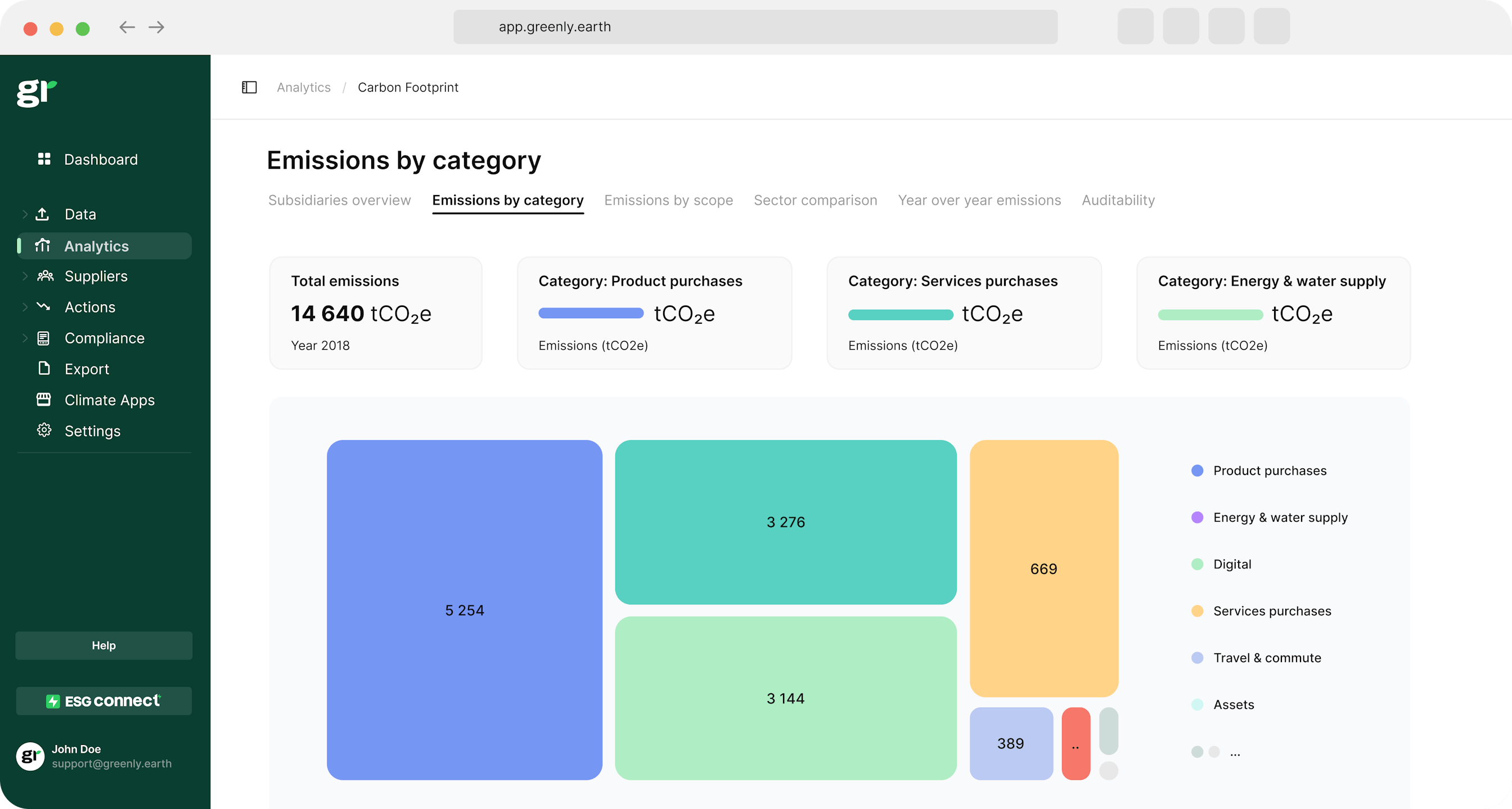ESG / CSR
Industries
What Was the Hottest Day Ever Recorded on Earth?



The hottest day ever recorded on Earth is more recent than you might think, with July 22nd 2024 now holding the spot for the hottest day ever recorded – and it could only get toastier from here.
It’s no secret that with climate change, one of the biggest problems is the skyrocketing temperatures that have had a ripple effect on multiple vital components of human life: such as our agriculture sector for food, devastating natural disasters that put stress on the insurance industries and even taxes, and the general dangers of having a heatwave.
Why is the hottest day ever recorded concerning, why is the world getting hotter, and is there a way that humans can prevent temperatures from rising even more than they already have?
How hot was the hottest day ever recorded?
The hottest day ever recorded was on July 22nd 2024 – with global surface air temperatures reaching a staggering 62.87 Degrees Fahrenheit (or around 17.15 Degrees Celsius).
Previously, the record for the hottest day ever recorded was on July 2rd 2023 – according to the U.S. National Centers for Environmental Prediction. The average global temperature on July 3rd, 2023 was around 62.62 Degrees Fahrenheit (or around 17 Degrees Celsius). This broke the previous hottest day ever recorded from almost seven years ago back in August 2016: where the hottest day ever recorded was 62.46 Degrees Fahrenheit (or 16.92 Degrees Celsius).
Most notably, areas in the world suffering from this intense heat include southern states in the U.S. (those of which are also more prone to natural disasters like hurricanes as climate change progresses), areas in China, the Middle East, and North Africa.
💡 In fact, these warm temperatures are only the beginning – with El Nino expected to draw out even more record breaking temperature records.

What was the hottest day ever recorded like?
It may have been a fun fourth of July, but it certainly wasn’t the coolest – as the hottest day ever recorded reached a blistering 62.87 Degrees Fahrenheit (or around 17 Degrees Celsius).
Cities across the U.S. suffered a blazing hot fourth of July in summer 2023, with southern U.S. cities like Raleigh, Savannah, Jacksonville breaking 100 Degrees Fahrenheit and being subject to a heat advisory. Places in the U.S. on the East Coast and the mid-atlantic are due for severe thunderstorms following the extreme heat: such as cities like Philadelphia, Washington D.C., and Richmond.
The extreme heat was no walk in the park for many Americans during 4th of July 2023, with the same heatwave having occurred this past summer 2024.
This past fourth of July wasn’t the only warning sign that global temperatures are getting worse than they already are: June was the hottest month for the planet on record – with temperatures being a full degree (in Fahrenheit) warmer than average across the world.
💡 It’s important to remember that global temperatures are rising due to a continued increase in human activities that contribute to global warming. If this is the current rate of rising temperatures, it is alarming to think of what temperatures children will face 20 years from now.
👉 Particularly, this past 4th of July weekend was a hot and hazy one for much of the U.S. – with 90 million people under health alerts. Last summer was also challenging as some of the residual wildfire smoke from the Canadian wildfires still making their way across the country even with the extensive heat.

Which areas of the world were affected by the hottest day ever recorded?
The average temperature on July 22nd, which was around 63 Degree Fahrenheit, apparently didn’t spare even in some of the coldest places in the world – according to the U.S. National Centers for Environmental Prediction. This certainly doesn’t help places being impacted by global warming and rising surface temperatures like the Himalayan Mountains – where large ice caps are breaking off and melting due to skyrocketing temperatures.
For example, California's Death Valley was the worst of the victims on the record breaking day on July 3rd, 2023 – seeing as the already dry conditions in the desert region were amplified when coupled with the intense heat.
In fact, several areas in the southwest of the United States and around the world were hit hardest by the hottest day ever recorded, such as:
- North Africa which hit 122°F (50°C)
- Argentine Islands which hit 47.6°F (8.7°C)
- China which hit 95°F (35°C)
👉 Although next to no part of the world was left unscathed by the hottest day ever recorded, regions with dry or desert like climates in the southwest of the U.S. were most affected the week of July 22nd, 2024.
Why is the hottest day ever recorded a problem for people?
The hottest day ever recorded is alarming for everyone on Earth – especially human beings, as these skyrocketing temperatures won't be conducive to sustainable living conditions long-term.
Some of the side effects of experiencing temperatures like the hottest day ever recorded on a normal basis include:
- Headaches
- Cramping and muscle soreness
- Swollen body parts such as hands, feet and ankles from the human body making an attempt to retain water in high temperatures
- Heat rash
- Fatigue and general tiredness
- Dehydration
- Dry Skin
- Heavy breathing
- Stomach sickness as intense heat can put stress on multiple systems in the human body
Some places in North Africa experienced a whopping 122 Degrees Fahrenheit on the hottest day ever recorded, and while it may seem impressive that an inhabitable place could even get that hot – the truth is that the long-term effects of this kind of heat on the human body are dangerous and even life threatening.
💡 The future is starting to look more grim following the hottest day ever recorded. Southern states will become impossible to live in by 2070 due to extreme heat and weather conditions. Intense heat, hurricanes, and wildfires will eventually make places like California, Texas, Louisiana, and Florida completely inhabitable.
In fact, around one third of the global population will start to face life threatening global warming situations. This will result in millions of people migrating, also referred to as “climate migration” – where people will escape their current cities in order to avoid the negative impacts of continuing to live in a climate prone area.
👉 Subsequently, this will put pressure on the cities that people will move to in order to escape the extreme heat. In other words, the effects of urbanization will become more apparent as various cities will be expected to accommodate an overwhelming amount of new people – which could encourage even more human activity and higher temperatures, too.

Is the hottest day ever recorded just the start of warmer temperatures?
The bitter truth is that the hottest day ever recorded could be the start of continuous record-breaking temperatures.
The main reason for this is that human activity is contributing to the excessive heat: and with mass production, travel, and other high carbon footprint activities being on the rise following the pandemic – isn't likely that many of these things contributing to climate change are going to slow down anytime soon.
💡 Think about it: as more places in the world become inhabitable, more people will need to move to cities already at full capacity – which will require more cities to cut down trees to build more buildings and houses for future residents. Global warming is nearly a domino effect where even some situations being executed in attempts to improve the situation at hand will result in more harm to the planet and the human population.
The other problem with extreme heat is that it could also cause storms – like the ones happening across the east coast and southern parts of the U.S. now. This could result in infrastructure issues, stress on insurance companies, derelict houses, disruption to education and businesses, tax delays, and more.
👉 Ultimately, the hottest day ever recorded doesn’t signify an endless summer vacation – but more so the start of a nightmare that could be hard to reverse if we don’t start to take more serious action to fight against global warming.

How can you protect yourself on a summer day like the hottest day ever recorded?
The goal is ultimately that instances like the hottest day ever recorded will encourage people to fight against climate change and work to reduce even hotter temperatures from occurring.
However, if warm weather is already upon us and it’s time to react instead of take precaution – here are some of the most important things you can do during a heatwave:
- Stay well hydrated;
- Avoid strenuous activities or vigorous exercise;
- Try to seek shelter indoors where there is air conditioning or at least ventilation;
- Refrain from wearing heavy or tight fitting clothing;
- Check in on your neighbors, families, and friends – especially those with pre-existing conditions that may be more prone to the effects of a heatwave;
- Be mindful of your mental health, as a heatwave and temperatures like the one recorded on Earth’s hottest day ever recorded can cause fatigue, stress, and other physical symptoms that could have a direct impact on our state of mind and overall happiness levels
👉 All in all, the best option is to implement good habits in both your business and personal life in order to help curb future unbearable summer days.
Is there a way to reduce these dangerous temperatures?
In truth, the only way to start preventing global temperatures from getting as bad as they already are is to start taking climate change more seriously.
For instance, many of the activities during the 4th of July (the same long weekend when the Earth had its hottest day ever recorded) were definitely not helping the cause. Many summer festivities such as road trips, fireworks, and barbeques are all human activities that contribute to climate change – and when exercised in already-extreme-heat, it doesn’t help the air to feel any cooler.
Small examples include choosing to take public transportation to work instead of driving, refraining from unnecessary travel via plane, and choosing fun sustainable summer alternatives – like attending a sustainable concert or committing to a zero-waste beach day.
Ultimately, global temperatures are going to continue to rise at unprecedented, horrifying rates until we pull the breaks on it ourselves. The hottest day ever recorded isn’t likely to hold its current record for long, but if we realized the value in the collective fight that is climate change – it just might stand a chance.

What about Greenly?
If reading this article about the hottest day ever recorded on Earth has made you interested in reducing your carbon emissions to further fight against climate change – Greenly can help you!
At Greenly we can help you to assess your company’s carbon footprint, and then give you the tools you need to cut down on emissions. We offer a free demo for you to better understand our platform and all that it has to offer – including assistance with boosting supplier engagement, personalized assistance, and new ways to involve your employees.
Click here to learn more about Greenly and how we can help you reduce your carbon footprint.







